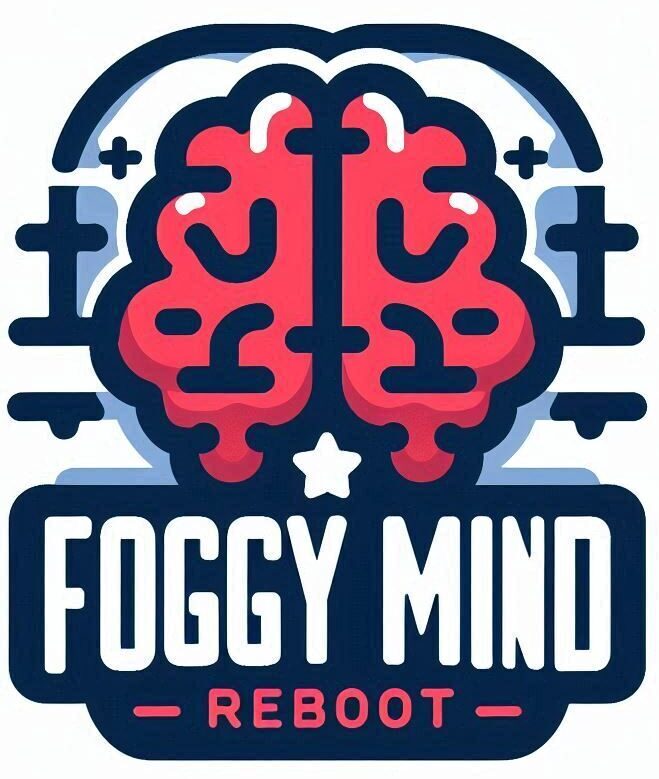
Understanding Brain Fog: How Nutritional Deficiencies Affect Cognitive Health
Brain fog is that frustrating feeling when your mind feels cloudy, making it hard to focus or think clearly. Imagine trying to tune into a radio station, but all you get is static. This mental fuzziness can affect your productivity, mood, and overall quality of life. But what causes brain fog? One major culprit is nutritional deficiencies.
Why Nutritional Deficiencies Cause Brain Fog
Certain nutrients play a crucial role in optimal brain function. Without them, your brain might not operate at its best. Think of your brain as a high-performance engine that requires the right fuel to run smoothly. When essential nutrients are missing, it sputters and slows down.
Some common deficiencies linked to brain fog include low levels of B-vitamins, vitamin D, iron, and omega-3 fatty acids. These nutrients are critical for energy production, neurotransmitter function, and overall brain health. Without them, your thinking may feel sluggish, and concentration can become difficult.
Signs of Nutritional Deficiencies Causing Brain Fog
How can you tell if your brain fog is due to a deficiency? Common symptoms include:
- Fatigue
- Irritability
- Trouble concentrating
- Muscle weakness
Pay attention to your diet as well. Are you frequently reaching for junk food or sugary snacks? These cravings could signal that your body is missing vital nutrients.
Key Nutrients for Brain Health
Boosting your brain power starts with the right nutrients. Here’s a breakdown of the essential nutrients that help maintain cognitive clarity.
1. Omega-3 Fatty Acids
Found in fatty fish like salmon, flaxseeds, and walnuts, omega-3s build cell membranes in the brain and have anti-inflammatory effects, which protect brain health. A consistent intake of omega-3s helps sharpen focus and keeps your thoughts clear.
2. B-Vitamins
B-vitamins—especially B6, B12, and folate—are vital for producing neurotransmitters, the chemicals that allow nerves to communicate. A deficiency can lead to mood disorders and poor concentration. Eggs, meat, dairy, and dark leafy greens are great sources of B-vitamins.
3. Antioxidants
Vitamins E, C, and beta-carotene are powerful antioxidants that defend brain cells against oxidative stress—like rust on metal. Foods rich in antioxidants include berries, nuts, and seeds.
4. Iron and Magnesium
Iron ensures oxygen is delivered to your brain, while magnesium supports over 300 biochemical reactions in the body, including nerve function. You can get iron from red meat, lentils, and spinach, while magnesium can be found in nuts, whole grains, and leafy greens.
Brain-Boosting Diet: A Sample Plan

Eating for cognitive health doesn’t have to be complicated. Here’s a simple meal plan loaded with brain-friendly nutrients to help you stay sharp and focused:
- Breakfast: Scrambled eggs with spinach and avocado on whole-grain toast (B-vitamins, omega-3s, magnesium)
- Lunch: Grilled salmon with quinoa and a side of roasted vegetables (omega-3s, iron, antioxidants)
- Snack: A handful of walnuts and blueberries (antioxidants, omega-3s)
- Dinner: Lentil soup with a mixed green salad topped with olive oil and flaxseeds (iron, omega-3s, magnesium)
How to Identify and Address Nutritional Deficiencies
Recognizing a nutritional deficiency isn’t always straightforward. Here’s how you can determine if you’re missing key nutrients:
- Blood Tests: A healthcare provider can run blood tests to check your levels of essential nutrients like B-vitamins, iron, and vitamin D. Don’t guess—get tested to know for sure.
- Dietary Sources First: Whole foods are the best way to meet your nutrient needs because they come packed with beneficial compounds. Aim for variety in your diet, including colorful fruits and veggies, lean proteins, and healthy fats.
- Supplements: If food alone doesn’t cut it, especially in cases of severe deficiencies, supplements can help. Consult with a healthcare professional before taking supplements to ensure you’re getting the right dosage and avoiding interactions with any medications.
- Seek Professional Advice: Nutritionists and dietitians can craft personalized plans based on your specific nutritional needs. Their expertise ensures that you’re addressing deficiencies effectively and safely.
Lifestyle Changes to Enhance Cognitive Function
While nutrition plays a critical role in cognitive health, lifestyle changes are just as important for improving mental clarity. Here are some key habits to adopt:
1. Stay Hydrated
Your brain is 75% water, and even slight dehydration can impair mental performance. Aim for at least eight glasses of water a day. Adding a slice of lemon or a splash of juice can make hydration more enjoyable.
2. Get Moving
Physical activity increases blood flow to the brain and stimulates the production of brain-derived neurotrophic factor (BDNF), a protein that supports neuron health. Find an activity you enjoy, whether it’s a brisk walk, yoga, or strength training, and make it a regular part of your routine.
3. Prioritize Sleep
Poor sleep is one of the fastest ways to impair cognitive function. Aim for 7-9 hours of quality sleep each night. Create a calming bedtime routine—such as a warm bath, reading, or stretching—and stick to a consistent sleep schedule.
4. Manage Stress
Chronic stress drains cognitive resources, making brain fog worse. Incorporating mindfulness, meditation, and breathing exercises into your daily routine can help reduce stress. Engaging in hobbies like drawing, gardening, or playing an instrument can also provide much-needed mental relief.
Conclusion: Fuel Your Brain for Lasting Clarity
Balanced nutrition, hydration, physical activity, and stress management all play a crucial role in supporting long-term cognitive health. By including key brain-boosting nutrients in your diet and making small lifestyle changes, you can significantly improve your mental clarity and overall well-being.
If you’re unsure whether nutritional deficiencies are contributing to your brain fog, get a blood test and consult with a healthcare professional. With the right guidance, you can fuel your brain for lasting clarity and focus.
Click here for “Complete Support For Healthy Memory, Concentration And Mental Acuity”
Here’s a little transparency: Our website contains affiliate links. This means if you click and make a purchase, we may receive a small commission. Don’t worry, there’s no extra cost to you. It’s a simple way you can support our mission to bring you quality content.”
